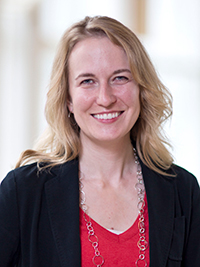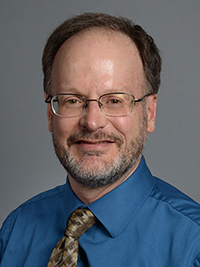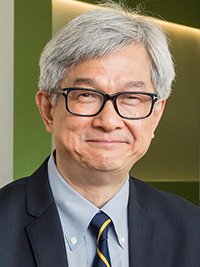As this unprecedented year of change and uncertainty winds to a close, it is more important than ever to look back and celebrate our accomplishments. Thanks to your continued support and a “Never Give Up” attitude we have been able to accomplish the unimaginable in a year of upheaval. We’ve held fast to our promise to fund innovative research, to connect and educate patients & families, to unite the pancreatic cancer community to make a difference. We have shown our resilience, and as we optimistically look toward to the new year, we want to make time to celebrate.
Our Seed Grants Continue to Lead to Big Research Results
When the world shutdown in March, unfortunately so did labs conducting research. As we adapted to our new normal, so have our Seed Grant recipients. As Dr. Gina Razidlo, of the Mayo Clinic, shared, “Pancreatic cancer doesn’t stop for a pandemic, and neither do we.” This spirit has been adopted across the board as our researchers continue to work towards a cure for pancreatic cancer while also contributing to COVID-19 research.
We are happy to share that Seed Grant awardee, Dr. David Wong of UCLA, has received funding to develop a saliva test for COVID-19 and its antibodies. His EFIRM technology, funded through our Seed Grant program, is currently in various clinical trials for early cancer detection.
Earlier this year we received the amazing news that our UCLA research team was awarded $5.75 million from the NIH to work on three collaborative projects to study the role of obesity & inflammation in pancreatic cancer. Our early funding is bearing fruitful results and this great accomplishment is just another stepping-stone towards a cure.
A key word of 2020 was pivot, which aptly applies to our Seed Grant program. This year we funded a first-of-its-kind collaborative Seed Grant to investigate how inflammation from chronic pancreatitis promotes tumor growth. We are optimistic that the future holds great strides for advancing early detection, prevention, and treatment options for pancreatic cancer!
Delivering Crucial Patient & Family Support, In Brand New Ways
When the pandemic began, we knew our top priority was to our patients & families. While we could not gather in person for our Annual Symposium, we, like most, took to Zoom to bring the doctors and resources to your homes. Our Patient & Family Webinars provided a space for pancreatic cancer patients & caregivers to learn, share their stories and connect with one another. So far, we have 12 amazing webinars in our resource library. We look forward to adding more in the coming year.
Being Apart Did Not Stop Us from Fundraising!
Despite not being able to gather for our fundraising events, our community rallied to continue fundraising & shining a light on pancreatic cancer. In March, our 35 Hirshberg Training Team members raised a record $143,000! If you’ve ever considered running a marathon, the Los Angeles Marathon will be on May 23, 2021 so there’s plenty of time to join our team and start training.
Our Tour de Pier held not one but two great events. As a thanks to our South Bay community, we hosted the Fight & Flight Flyover show on what would have been the 8th Annual Tour de Pier, May 17th. Our hope was to be able to ride together in September but in this year of surprises, we pivoted to a virtual event. We created the Virtual Tour de Pier ride, an outstanding 50-minute workout that captures the spirit of the event. It’s now available for all, delivering the essence of the TDP to the comfort of your home.
The LA Cancer Challenge was our true success story of the year. Despite not being able to hold our 5K at UCLA, our community persevered and brought the LACC home. From Anchorage, Alaska to Woodbridge, Virginia, sunny Honolulu to snowy Salt Lake City, you made the LACC a family priority and a day to remember. We indeed colored the map purple for pancreatic cancer with participants in 44 states raising over $385,000!
We rolled right into November to shine a bright light on this disease for Pancreatic Cancer Awareness Month. Our Celebrate, Participate & Dedicate campaign continued to empower, educate and inspire our community. We celebrated with partnerships with small businesses that give back, participated in virtual events near and far, and shared dedications to loved ones lost and survivors. Our month was full and renews our commitment to making a difference for all those touched by this disease!
This year was not without setbacks. The loss of Justice Ruth Bader Ginsburg, Rep John Lewis and Jeopardy host Alex Trebek to pancreatic cancer shook the nation. Each one inspired us before they were diagnosed then became motivators to pancreatic cancer fighters everywhere as they battled this disease. Their loss is a reminder that despite the odds, we must never give up.
This year of being apart yet together has highlighted the resilience, determination and passion of our community – we thank you for sticking with us through the ups and downs of this rocky year.
Through December 31st, the spirit of generosity continues with a matching gift! Thanks to Birdie & Bob Feldman and Agron, Inc., all donations up to $100,000 will be matched dollar for dollar. Now is the time to double your year-end donation while helping to lower your tax bill. The CARES Act states that all donors can claim up to $300 per taxpayer or $600 for jointly filing married couples on charitable gifts made in 2020, whether you itemize or take a standard deduction. Help drive research towards a cure while supporting the families facing this disease today. If you are able, please give today, so that we may continue in our efforts and end 2020 on a high note, worthy of celebration.
Thank you again for making all these 2020 accomplishments possible. Warmest holiday wishes from the Hirshberg Foundation & all those we support.


